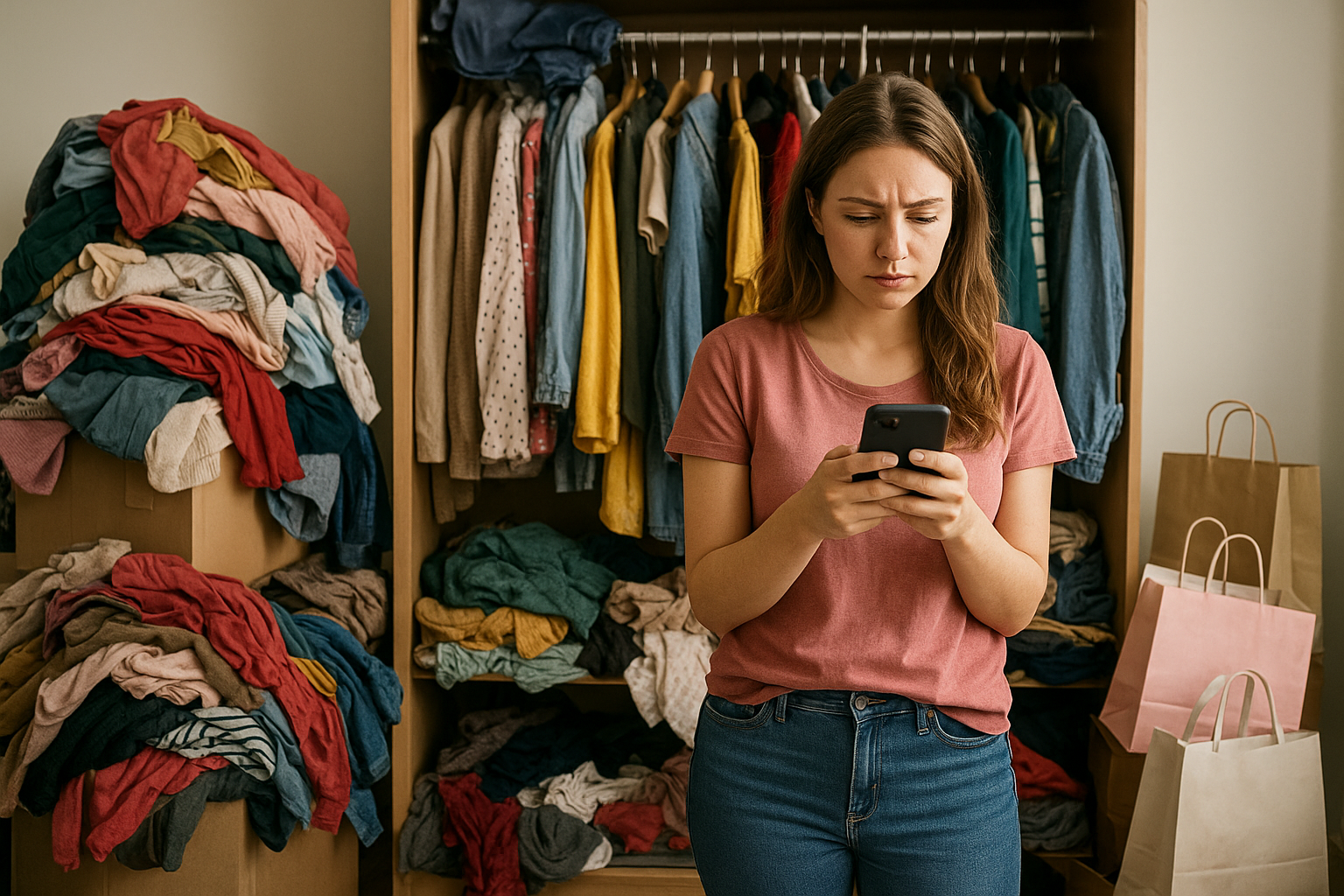The Burden of Excess: How Overconsumption Haunts Life and Legacy
Share
In modern society, the pursuit of material possessions has become synonymous with success. Yet, the relentless cycle of acquiring, maintaining, and discarding "stuff" exacts a heavy toll—on our wallets, time, mental health, and even our planet. Worse still, these items often outlive their owners, burdening loved ones with the task of sorting through mountains of unused clutter. This article explores the paradox of overconsumption: how our obsession with owning more leaves us—and future generations—with far less.
The Cycle of Overconsumption: Working to Buy, Buying to Work
The average person spends $18,000 annually on non-essential goods, according to a 2022 study by the Bureau of Labor Statistics. From trendy gadgets to fast fashion, many purchases are driven by fleeting desires rather than necessity. To afford these items, individuals work longer hours, sacrificing time with family, hobbies, and rest. This cycle traps people in a loop of earning and spending, perpetuating stress and dissatisfaction.
Key Statistic:
The EPA reports that the average American household contains 300,000 items, 50% of which are rarely or never used.
The Legacy of Unused Possessions
When a person dies, their belongings often become a logistical nightmare for grieving families. Sorting through attics, garages, and storage units filled with decades of accumulated items can take weeks or months. Many heirs face emotional strain, guilt, or resentment when deciding what to keep, donate, or discard.
Case Study:
A 2021 survey by EstateExec found that 65% of executors described managing a loved one’s estate as “overwhelming,” citing clutter as the primary challenge.
The Hidden Costs: Psychological and Environmental
Psychological Toll:
Cluttered spaces correlate with anxiety, decision fatigue, and reduced productivity. A Journal of Environmental Psychology study linked excessive possessions to higher cortisol levels, a stress hormone.
Environmental Impact:
Overconsumption fuels resource depletion and waste. The Global Footprint Network estimates that humanity uses 1.7 Earths’ worth of resources annually, with discarded items contributing to landfills and microplastic pollution.
Key Statistic:
The Ellen MacArthur Foundation warns that by 2050, there could be more plastic than fish in the ocean by weight.
Embracing Minimalism: A Path to Freedom
Minimalism—a lifestyle prioritizing intentionality over accumulation—offers an antidote. Advocates like Marie Kondo (author of The Life-Changing Magic of Tidying Up) emphasize keeping only items that “spark joy.” Studies show minimalists report higher life satisfaction, as they redirect time and money toward experiences, relationships, and personal growth.
Quote:
“Minimalism is the intentional promotion of the things we most value and the removal of everything that distracts us from it.” – Joshua Fields Millburn, The Minimalists.
Practical Steps to Break Free
- Declutter Methodically: Use the “20/20 Rule”—if you can replace an item for under $20 in 20 minutes, let it go.
- Buy Consciously: Ask, “Will I use this daily? Does it add value?”
- Plan Your Legacy: Create a will specifying how possessions should be handled.
Conclusion
Overconsumption is a societal malady with far-reaching consequences. By redefining success beyond materialism, we can lighten our lives, reduce environmental harm, and spare loved ones future burdens. As Lao Tzu said, “He who knows he has enough is rich.”
References
- Bureau of Labor Statistics. (2022). Consumer Expenditure Survey.
- EPA. (2023). Advancing Sustainable Materials Management.
- EstateExec. (2021). Estate Settlement Survey.
- Global Footprint Network. (2023). Ecological Footprint Report.
- Ellen MacArthur Foundation. (2023). The New Plastics Economy.
- Kondo, M. (2014). The Life-Changing Magic of Tidying Up.
- The Minimalists. (2023). Essential Essays.

